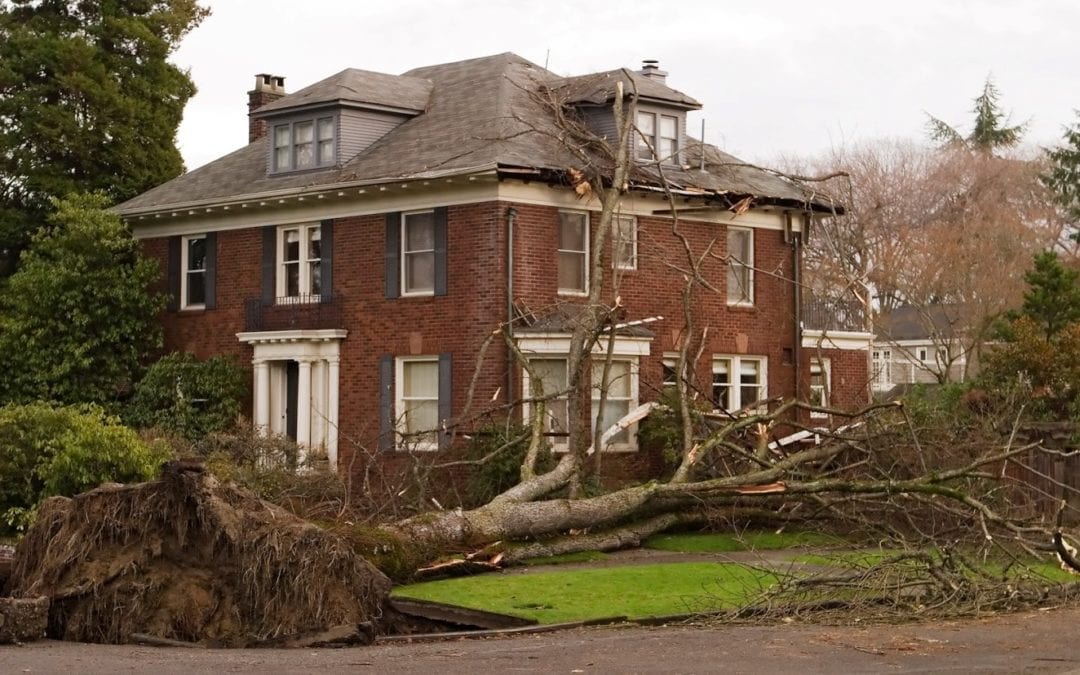Call Now for a fast FREE Quote!
Which Natural Disasters Does Home Insurance Protect Against in Florida?

Florida is no stranger to natural disasters. Large hurricanes are practically guaranteed. Florida also has its share of large tropical storms, tornadoes, and even the occasional wildfire. You may know that a natural disaster will occur, but do you know how your home insurance will help you?
Which Natural Disasters Are of the Most Concern?
The most prevalent natural disasters in Florida are storm-based. A mild hurricane can damage property in a number of ways, while a severe hurricane can completely devastate a home. One of the main issues with storm damage is that it can lead to other types of damage as well. A hurricane can lead to:
- Extensive exterior home damage
- Extensive interior home damage
- Extensive flooding
- Sewer problems
Your insurance probably has some kind of coverage for storm damage, however, that same policy may not cover all the different types of damage the storm can cause. For example, flooding and hurricane insurance often come separately. Check your insurance policy to make sure that storm damage and related issues are covered.
Which Natural Disasters Does a Typical Homeowners Insurance Policy Cover?
A basic homeowner’s insurance policy will most likely cover the following:
- Fire
- Lightning
- Windstorm
- Hail
Upgrading beyond a basic policy can give your more protections. For example, an open-peril policy covers damage from anything except specifically named perils. Unfortunately, those specifically named perils are often certain types of natural disasters. Examples of these exclusions can include:
- Floods
- Earthquakes
- Sinkholes
- Landslides and mudslides
For Florida residents, the exclusion that often hurts the most is flooding.
Which Coverage Type Protects Against the Most Common Natural Disasters?
All-inclusive insurance packages rarely exist for homeowners. Examine your options closely. Choose the coverage that works best for you, your home, and your belongings. A good place to start is with the aforementioned open-peril policy. From there, you can look at the list of specific exclusions and judge if you need to add any separately.
For example, your policy may offer protection from a hurricane’s wind damage, but it might not help you with flooding caused by the same hurricane. If you live on the coast, then you will have different insurance needs than someone who lives inland. Insurance companies know this. That’s why they offer different types of packages based on your location.
Many people misunderstand their coverage amount and limits. You can have flood insurance that kicks in for damage to the structure of your home, but nothing to help pay for any damaged personal belongings. Don’t wait until a natural disaster strikes before you find out what insurance company will or won’t do.
How Can You Prepare for a Natural Disaster?
Your homeowner’s insurance can do a lot for you if there’s a natural disaster. However, you should also do what you can to mitigate potential damage. For most Florida residents, this means doing what you can before a storm, rather than after. A few things you can do include:
- Keep your trees trimmed
- Remove all debris from your yard ahead of a storm
- Invest in storm windows or other coverings
- Maintain your home’s exterior (roofing, siding, gutters, etc.)
- Maintain your homes plumbing system
All of these things can help protect your home from damage from storms, hurricanes, or whatever else nature throws your way. You can sometimes save money on your insurance if you install or practice safety measures that your insurance company approves of.
Know your area. For example, if you live where there’s a high probability of fire breaking out, then consider insurance options for that possibility. Metropolitan Insurance offers a variety of insurance options for Florida homeowners. Whether you need a standard or non-standard policy for your home, contact us today to explore your options.
5550 North Elston Ave.
Chicago, IL. 60630







